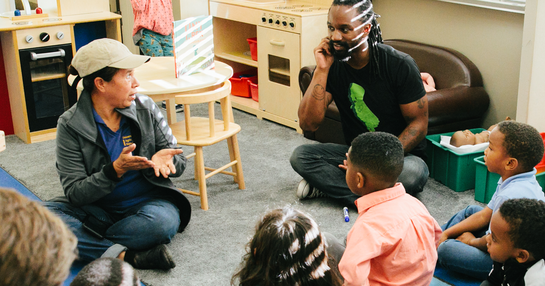 We all know that raising kids is expensive. An extra $250-300 a month can go a long way in helping families provide food and clothes, and paying for child care and rent. This year many families are receiving that extra income due to the restructuring of the Child Tax Credit (CTC). Part of the American Rescue Plan passed by Congress in March, it made CTC payments larger -- up to a total of $3,000 per child ages 6-17 and $3,600 for children under six. It also allowed more families to be eligible. The result has been that millions of families have been lifted out of poverty nationwide. While many families are receiving the payment, there are some who do not know they qualify. By Julia Forte Frudden, Research Consultant for OSSS and OUSD ECE  Over the past year and a half, Oakland Starting Smart and Strong and Oakland Unified’s Early Childhood Education Department have been meeting with parent leaders from the San Antonio Family Resource Center to discuss their local Early Development Instrument (EDI) results and learn about their advocacy work. The Resource Center’s Parent Action Research Team (SAFRC PART) is a community of multicultural, multilingual parent leaders who live or work in this Oakland neighborhood; they come together to improve services and resources for families with young children. |
Archives
July 2024
Categories
All
|

 RSS Feed
RSS Feed